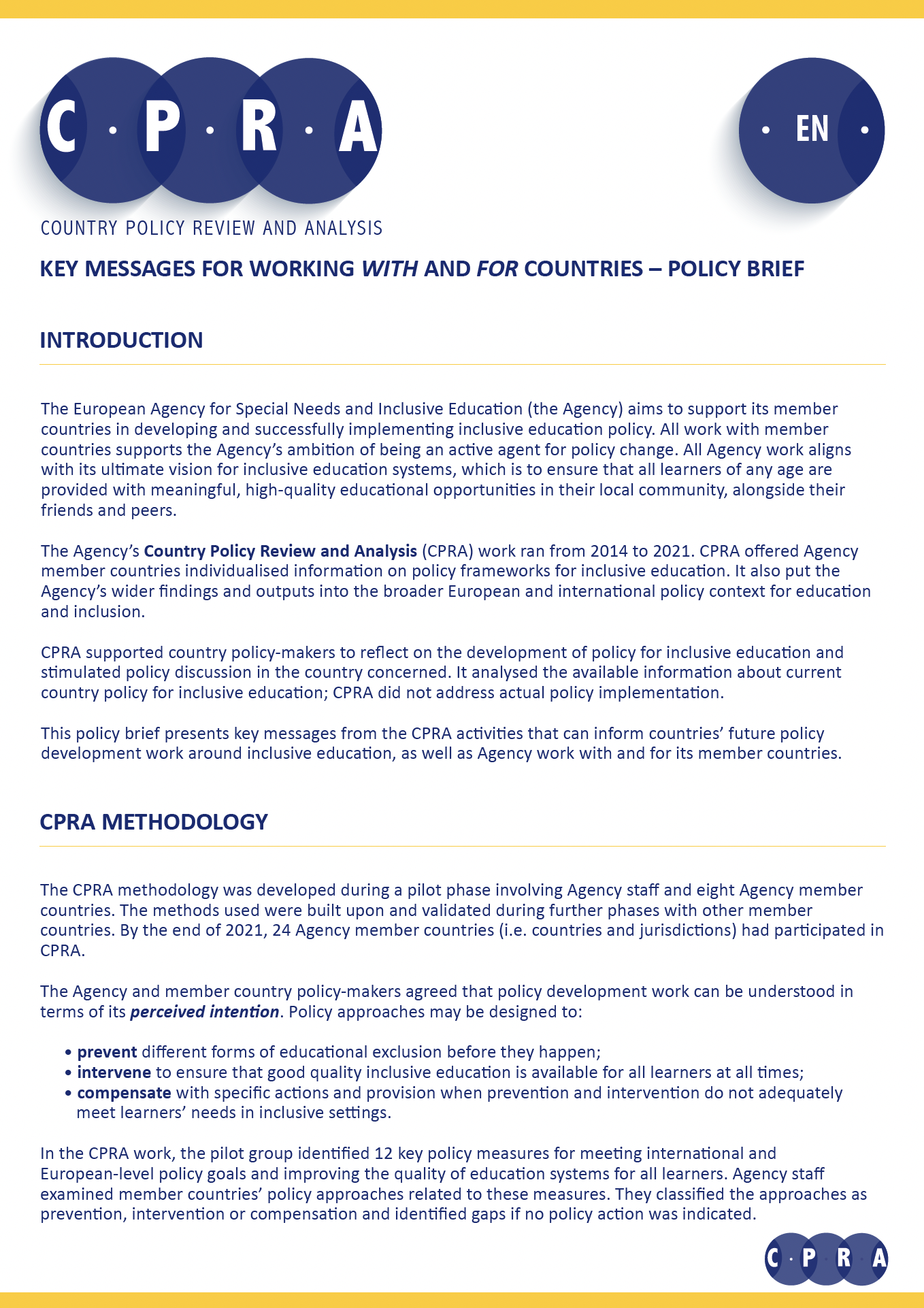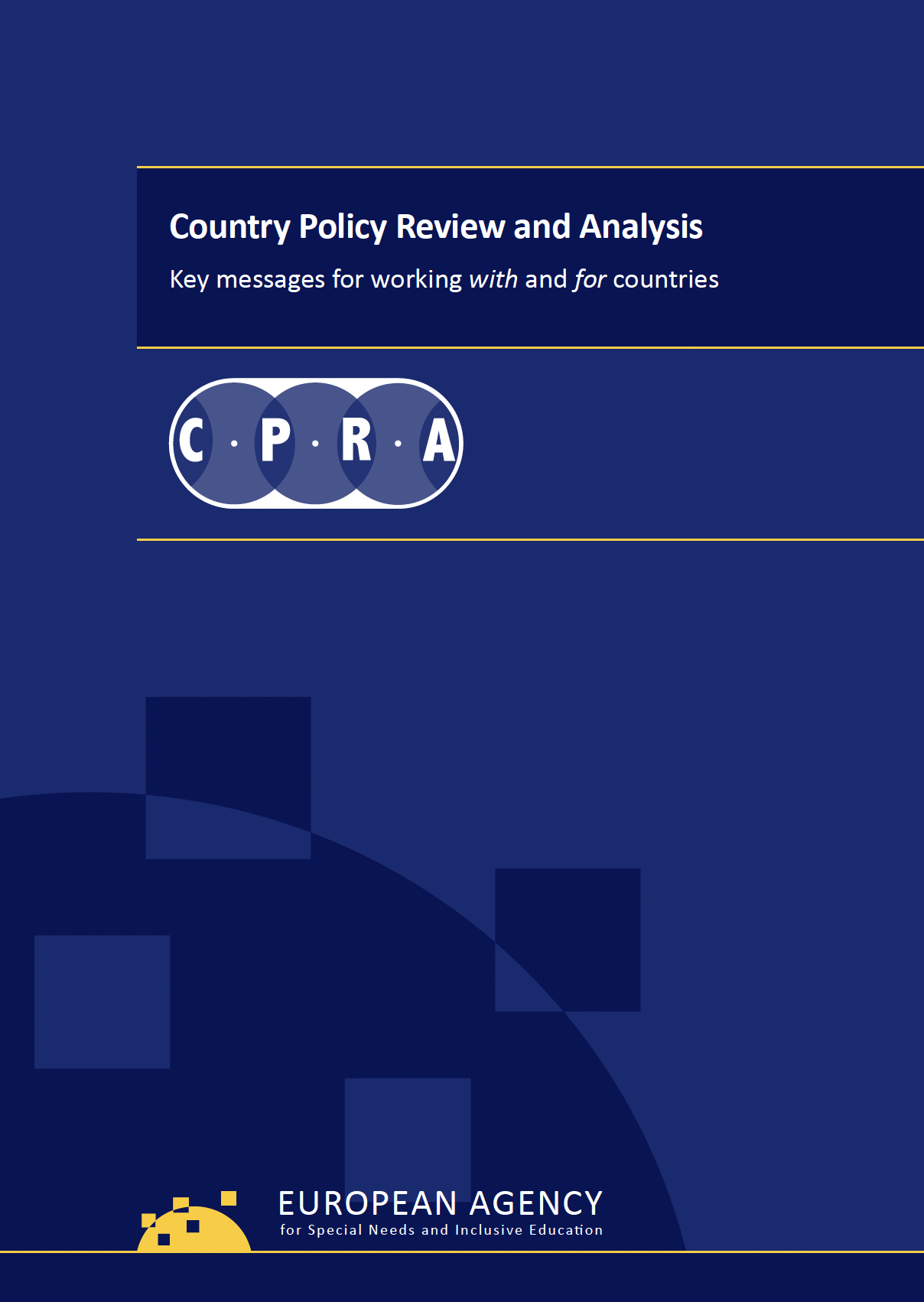Welcome to the Country Policy Review and Analysis web area!
The Country Policy Review and Analysis (CPRA) work supports reflection regarding the development of country policies for inclusive education. CPRA aims to act as a tool for stimulating discussion in the country concerned. Its central focus is to analyse the available information about current country policy for inclusive education; the CPRA work does not in any way address the actual implementation of the policy being considered.
Aims of the CPRA activities
The CPRA work has been developed to provide a form of individualised country information. This provides countries with a reflection on their current policy frameworks for inclusive education. It also offers them recommendations for priorities to be addressed that are specific to their country.
The policy context for the CPRA work is the three main priorities within the Education and Training 2020 strategic objectives (ET 2020) and European Council Country Specific Recommendations (CSRs).
Activities and outputs
The CPRA methodology was initially developed via an iterative process involving Agency staff members and policy-makers from eight countries: France, Italy, Lithuania, Malta, Norway, Portugal, United Kingdom (England) and United Kingdom (Scotland). They participated in a piloting phase of the work running throughout 2015/2016.
This work has been built upon and the methods and approaches validated during further work with seven more countries in 2017/2018 – Belgium (French Community), Estonia, Greece, Hungary, Latvia, Slovak Republic and Spain – and with five more countries in 2018/2019 – Cyprus, Czech Republic, Poland, Serbia and Sweden. During 2019/2020, two further countries – Belgium (Flemish Community) and the Netherlands – completed the process, along with one German Land – Hessen. In 2021, United Kingdom (Northern Ireland) completed the process.
The main results of the policy analysis work with countries are available from the links below:
- Belgium (Flemish Community)
- Belgium (French Community)
- Cyprus
- Czech Republic
- Estonia
- France
- Germany (Hessen)
- Greece
- Hungary
- Italy
- Latvia
- Lithuania
- Malta
- Netherlands
- Norway
- Poland
- Portugal
- Serbia
- Slovakia
- Spain
- Sweden
- UK – England
- UK – Northern Ireland
- UK – Scotland
The results of the policy analysis work with countries should be seen as time-focused 'snapshots' of information. Each country file clearly indicates when the information was completed, so readers can be clear on the currency of the information provided.
A full reference is provided for each of the country files. This should be clearly cited whenever this work is used or quoted.
The CPRA Methodology Report updated in 2018 describes the steps and approaches taken.
The CPRA results are essentially addressed to ministries of education. They have the potential to be used as a reference tool according to national-level priorities and needs. It is also anticipated that the CPRA work outputs will contribute to international-level requests directed to ministries of education. These may be, for example, in relation to European-level work and country contributions associated with CSRs and international-level work linked to the reporting process for the United Nations Convention on the Rights of Persons with Disabilities (UNCRPD; 2006).
In 2021, the Agency published the CPRA Key Messages report which presents the main findings from the CPRA activities between 2014 and 2020. During this time, 23 Agency member countries took part in the work. A Policy Brief outlining the key messages for policy development is also available.


